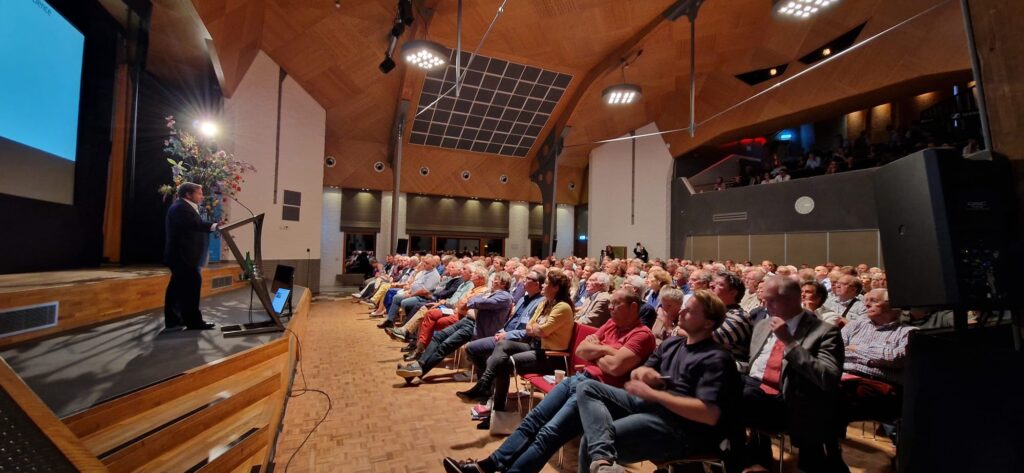The science is not settled. That is the central message in prof. Steven Koonin’s climate bestseller: Unsettled. Koonin, former Undersecretary for Science in the Obama Administration (2009-2011), demonstrates in his book that the climate problem is often exaggerated and that the proposed energy transition is unfeasible. On the occasion of the launch of the Dutch translation of Unsettled (initiated by Clintel), Koonin visited The Netherlands and gave two presentations.

Steven Koonin
On September 27th Koonin gave a presentation on his book (video here) and on September 28th he participated in a energy symposium aimed at professionals working on the energy transition (video here).
The science is not settled, says Koonin. This is in direct contrast with what mainstream climate science proclaims: the climate changes because of our emissions of CO2, this will have disastrous consequences and we have to reduce these emissions as soon as possible. It’s unusual that fundamental criticism on mainstream climate science comes from somebody like Koonin. After all, he can’t be labelled as some kind of extremist or ‘climate denier’. Koonin (71) is a very renowned scientist; for three decades he was professor of Theoretical Physics at the California Institute of Technology (Caltech) and he is a member of the Academy of Sciences. Even more remarkable in this context: Koonin was Undersecretary for Science at the Department of Energy in the Obama Administration (2009-2011). So, for President Obama he was one of the top advisors for climate and energy. Currently, Koonin is professor at New York University.
A large part of Koonin’s book, and of his first presentation in The Netherlands, is devoted to the careful and systematic check of the claims of the climate establishment (mostly the IPCC) and the media. Koonin returns to the scientific sources and concludes, amongst other things, that hurricanes and tornado’s do not get worse, that the global burnt area per year is decreasing, that the sea level rise is not worrying and that the number of ‘climate victims’ has decreased spectacularly in the last hundred years. However, the average news consumer is not aware of these facts. According to Koonin, this is because the stream of information from climate science to politicians and the media is severely corrupted through misunderstandings and through deliberate misinformation.
A second major point that Koonin stresses, is that a quick energy transition towards renewable energy sources is impossible. Such a transition would mean a serious disruption of our society and would also be much less effective than often assumed (because CO2 remains in the atmosphere for a very long time). That’s why Koonin, at the energy symposium of September 28th, focused on the hasty, thoughtless and unfeasible approach of the energy transition of the Western world. He advocated a more considered and effective approach.
Besides Koonin, Dutch energy expert Theo Wolters gave a presentation about the requirements of an efficient carbon free energy system in The Netherlands (video here), while journalist Alexander Wendt spoke about the dramatic consequences of climate policy in Germany (video here).
